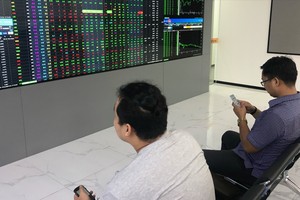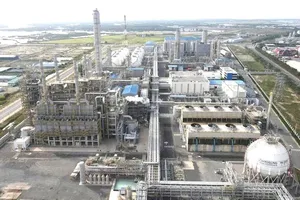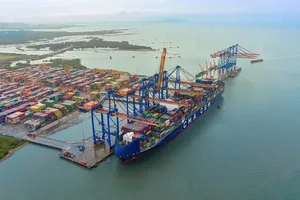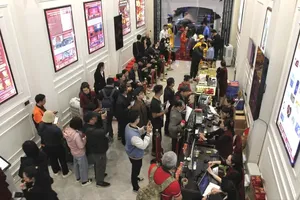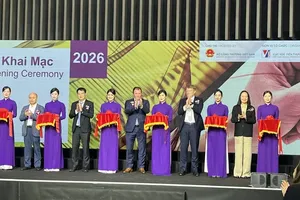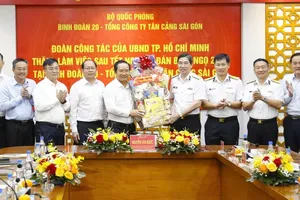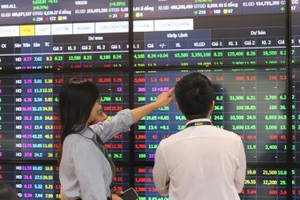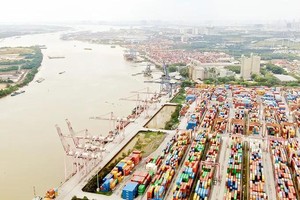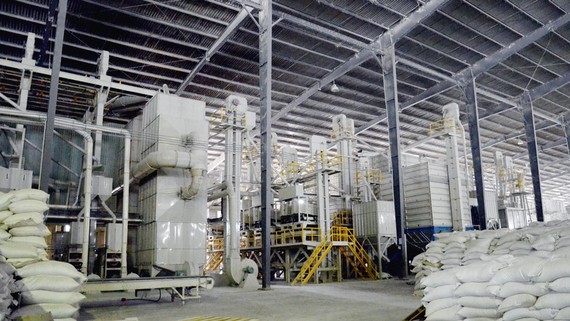
However, of the 177 equitized enterprises, only 37 out of 128 equitized enterprises are in the equitization category following the Official Dispatch No.991/TTg-DMDN and the Decision No.26/2019/QD-TTg of the Prime Minister, reaching 28 percent of the plan. The number of enterprises to be equitized under the plan in the remaining five months of this year is 91 enterprises. Equitization progress is relatively slow compared to the set target.
The equitization progress remained sluggish at many places, including Hanoi, Committee for Management of State Capital at Enterprises, the Ministry of Industry and Trade, and the Ministry of Construction. The implement of the equitization plan still faced many difficulties due to the large scale of enterprises, such as the Vietnam Post and Telecommunications Group, Vietnam National Chemical Group, Vietnam National Coal - Mineral Industries Group, Vietnam Northern Food Corporation, MobiFone, and Agribank. These enterprises have not been approved of the land use plans to be able to conduct enterprise valuation.
The divestment also happened similarly. From 2016 to July 2020, enterprises have withdrawn VND25.63 trillion, earning over VND172.8 trillion. However, the divestment under the Decision No.1232/QD-TTg on approving the list of enterprises with state capital to divest in the period from 2017 to 2020 remained stagnant. The units with many enterprises that have to divest under the Decision No.1232/QD-TTg are the Ministry of Industry and Trade, the Ministry of Construction, which has to divest capital at eight out of 11 joint-stock corporations, and Hanoi which has to divest capital from 31 out of 34 enterprises.
According to the Ministry of Finance, one of the reasons for the slow equitization and divestment was the outbreak of the Covid-19 pandemic, which had a comprehensive impact on the domestic and international socio-economy. Besides, some large economic groups and corporations have had complicated financial situations, wide scope of operation, and owned lots of land in many provinces and cities, so the financial processing, the approval of land use projects, the determination and auditing the value of enterprises, and initial public offering have faced many difficulties and taken a long time.
On the other hand, the observance of disciplines and laws in the implementation of the Land Law and the Law on Public Asset Management and Use has not been serious and regular. Only until carrying out equitization, did many enterprises arrange and handle the land use plans, leading to a delay in the equitization process. Especially, some ministries, localities, and enterprises have not been serious and drastic in directing and implementing equitization and divestment, not actively advised and proposed solutions to remove problems and shortcomings under their authorities.
The sluggishness in equitization and divestment has been mentioned many times, but the progress has not improved much. According to experts, to effectively carry out this, it is necessary to place the responsibility for the results of implementing the enterprise restructuring on the leaders and impute the responsibility to the leaders when they fail to complete the assigned task. With that, the equitization and divestment progress will be able to escape from the current sluggish situation.
The equitization progress remained sluggish at many places, including Hanoi, Committee for Management of State Capital at Enterprises, the Ministry of Industry and Trade, and the Ministry of Construction. The implement of the equitization plan still faced many difficulties due to the large scale of enterprises, such as the Vietnam Post and Telecommunications Group, Vietnam National Chemical Group, Vietnam National Coal - Mineral Industries Group, Vietnam Northern Food Corporation, MobiFone, and Agribank. These enterprises have not been approved of the land use plans to be able to conduct enterprise valuation.
The divestment also happened similarly. From 2016 to July 2020, enterprises have withdrawn VND25.63 trillion, earning over VND172.8 trillion. However, the divestment under the Decision No.1232/QD-TTg on approving the list of enterprises with state capital to divest in the period from 2017 to 2020 remained stagnant. The units with many enterprises that have to divest under the Decision No.1232/QD-TTg are the Ministry of Industry and Trade, the Ministry of Construction, which has to divest capital at eight out of 11 joint-stock corporations, and Hanoi which has to divest capital from 31 out of 34 enterprises.
According to the Ministry of Finance, one of the reasons for the slow equitization and divestment was the outbreak of the Covid-19 pandemic, which had a comprehensive impact on the domestic and international socio-economy. Besides, some large economic groups and corporations have had complicated financial situations, wide scope of operation, and owned lots of land in many provinces and cities, so the financial processing, the approval of land use projects, the determination and auditing the value of enterprises, and initial public offering have faced many difficulties and taken a long time.
On the other hand, the observance of disciplines and laws in the implementation of the Land Law and the Law on Public Asset Management and Use has not been serious and regular. Only until carrying out equitization, did many enterprises arrange and handle the land use plans, leading to a delay in the equitization process. Especially, some ministries, localities, and enterprises have not been serious and drastic in directing and implementing equitization and divestment, not actively advised and proposed solutions to remove problems and shortcomings under their authorities.
The sluggishness in equitization and divestment has been mentioned many times, but the progress has not improved much. According to experts, to effectively carry out this, it is necessary to place the responsibility for the results of implementing the enterprise restructuring on the leaders and impute the responsibility to the leaders when they fail to complete the assigned task. With that, the equitization and divestment progress will be able to escape from the current sluggish situation.
